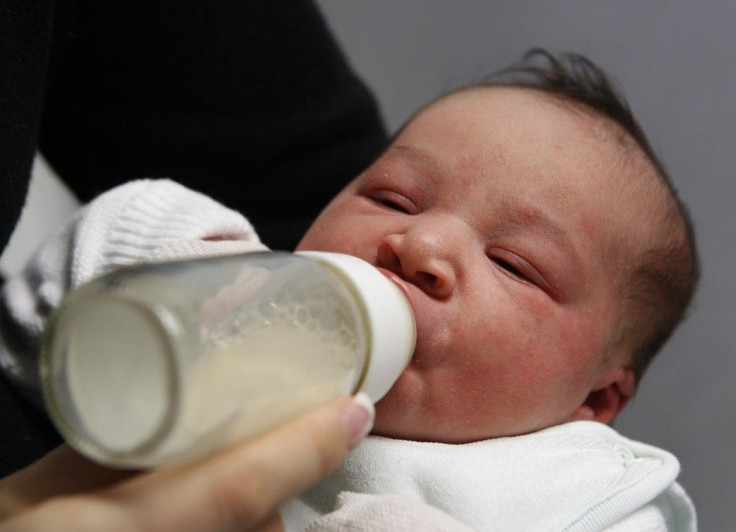Baby Formula Shortage: Recalls Force Retailers To Place Limits On Sold Out Infant Brands
A baby formula shortage is impacting the U.S. and affecting parents of infants after a nationwide recall pulled back several lots of popular brands of formula due to potential contamination back in February.
Now, nearly 30% of popular baby formula brands may be sold out at retailers across the country, according to research firm Datasembly, as reported by USA Today.
“This is a shocking number that you don't see for other categories,” Ben Reich, CEO of Datasembly, told CBS MoneyWatch. “We've been tracking it over time and it's going up dramatically. We see this category is being affected by economic conditions more dramatically than others.”
As of result of the shortage, some retailers are rationing sales of infant formula.
CVS Health told USA Today, “Product supply challenges are currently impacting most of the retail industry. We’re continuing to work with our national brand baby formula vendors to address this issue and we regret any inconvenience that our customers may be experiencing."
Walgreens told the same news outlet that it was limiting infant and toddler formulas to three per transaction “to help improve inventory," adding, "Due to increased demand and various supplier issues, infant and toddler formulas are seeing constraint across the country.”
States seeing the worse impact from the baby formula shortage, according to Datasembly, as reported by CBS News, include: Connecticut, Hawaii, Iowa, Louisiana, Maryland, North and South Dakota, Rhode Island, and Texas, all of which had at least a shortage of 40% or higher in mid-March.
The situation is more dire in Minnesota, which had a 54% shortage of the product also in mid-March, according to Datasembly, CBS News said.
The recall, which was issued in mid-February by Abbott Nutrition, impacted several batches of Similac, Alimentum, and EleCare baby formulas produced in Sturgis, Michigan. The recall was expanded in late February to also include one lot of Similac PM 60/40 infant formula.
The Food and Drug Administration said the Michigan plant failed to maintain sanitary conditions and protocols, which caused contamination of the baby formula with a bacteria known as Cronobacter, which can be fatal in babies.
According to the Centers for Disease Control and Prevention, nearly 75% of infants consume some baby formula by the six-month mark.

© Copyright IBTimes 2025. All rights reserved.





















